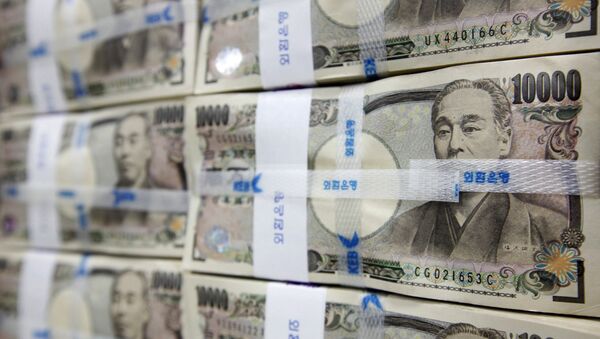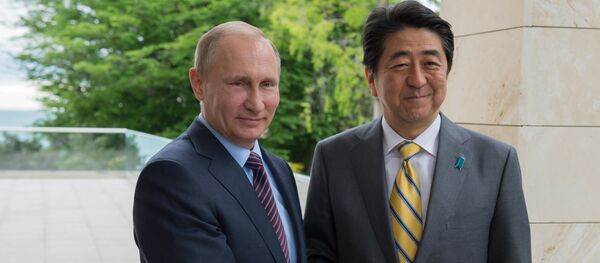MOSCOW (Sputnik) — Japan's central bank approved a 28 trillion-yen ($278 billion) package of measures to boost the country's economy earlier in August. At the same time, the bank announced that a policy review would be conducted in September, sparking fears of a stimulus rollback.
"However they conduct the assessment, there is already an answer: Monetary policy hasn't been eased enough…[there is] more than a 50% possibility of bold monetary easing measures," Honda said in an interview with The Wall Street Journal, which was published on Thursday.
Reducing stimulus measures before Abe's 2-percent inflation target is reached would mean Japan remaining stuck in deflation territory, he added, noting that increased taxes and unfavorable external factors were the main factors offsetting the stimulus.
Japan's economy, which is currently the third largest by nominal GDP in the world after the United States and China, has been affected by stagnation and slow economic growth for years. The country's core inflation rate has hovered around and below zero since April 2015, continuing along the same trend since the 1990s. In an effort to counter the trend, the Bank of Japan kept its interest rate at —0.1 percent in July and decided to carry on 80 trillion yen worth of asset purchases annually.
In 2012, Abe had already announced measures to halt economic stagnation, including structural reforms, monetary easing and fiscal stimulus. The plan, which was dubbed Abenomics and focused mainly on monetary policy, was introduced after Abe’s election in December 2013. It has been described as a failure by the opposition.


